The day Lin family killer Robert Xie finally confessed to his crime
The mass-murder confession of family killer Robert Xie was the result of a complex and high-risk undercover operation, involving a fake undertaker and an imaginary corpse. EXCLUSIVE AUDIO
True Crime
Don't miss out on the headlines from True Crime. Followed categories will be added to My News.
In Parts I, II and III of this series we introduced you to the finest crime-solving assets in NSW law enforcement. They pose as hitmen, paedophiles and high-level drug dealers working from the Branch’s ultra-secretive headquarters. Now, in Part IV, we reveal one of the most critical undercover jobs ever — the day undercover Josh Harris coaxed a confession from the mass-murderer Robert Xie — inside Parklea Correctional Centre.
Not long before he retired from the NSW Undercover Branch, Josh Harris was deployed on one of his last, most critical assignments. Using little more than a cover story and a hidden microphone, he was dispatched into the prison system to meet Lian Bin ‘Robert’ Xie, a tall, wiry man awaiting trial for the mass murder of his wife’s family, a case known widely through Sydney as the ‘Lin family murders’.
“He was a very calm man, very softly-spoken, but quite smart and cunning,” Josh said of his three meetings with Xie. “I could see him taking it all in. I mean, I always thought he did it, but why would he meet me if he hadn’t?”
July 18, 2009. A clutch of police cars slowed to a stop outside a two-storey home on Boundary Rd, North Epping, close to where parents were watching their children play weekend sport.
Inside, officers encountered distressing scenes. In the master bedroom they found Min Lin and his wife Lily, aged 45 and 44 respectively. In another room they found two boys, Henry and Terry, aged 12 and 9, and in a third room was Lily’s sister, Irene, aged 39. All five died in incredibly violent circumstances, their faces bludgeoned beyond recognition. Police suspected a bitter, deeply personal attack.
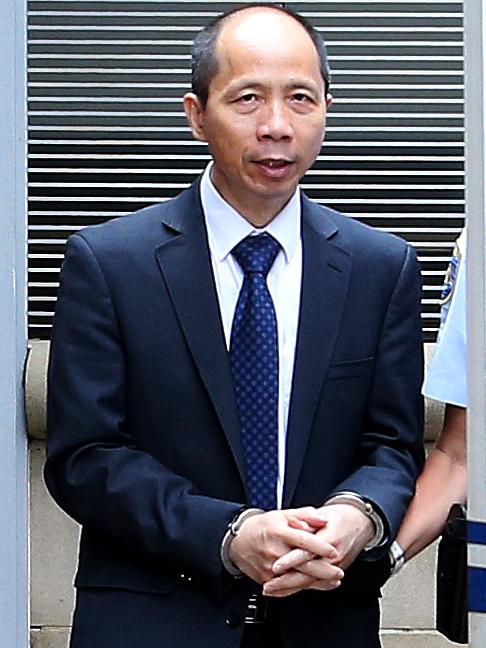
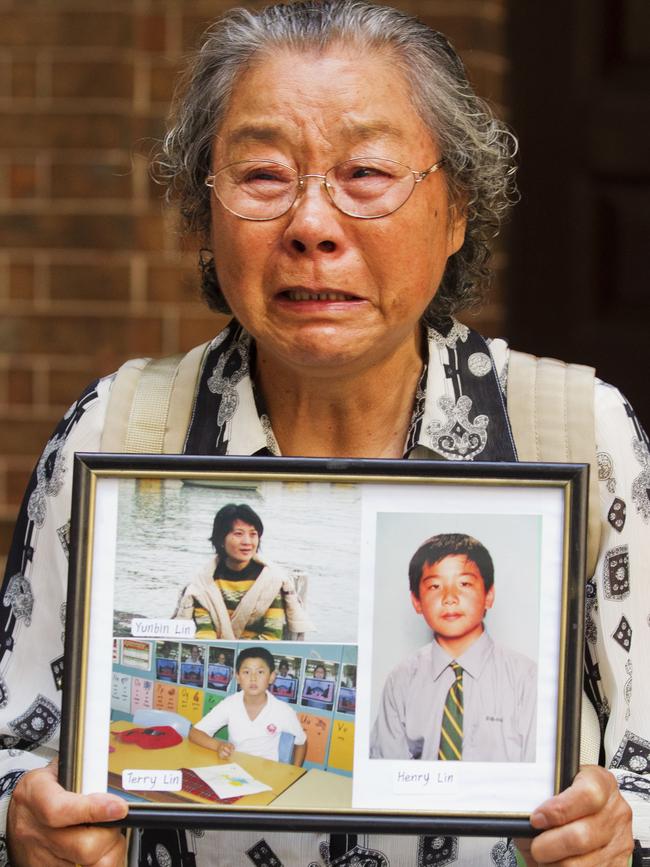
Homicide detectives spent nearly two years ruling out Chinese triads and a slew of alternative theories before finally arresting Xie, the family’s uncle, on May 5, 2011. Bloody footprints from the crime scene matched his ASIC-brand running shoes. Surveillance footage showed him cutting up a shoebox and flushing away its remnants. And, crucially, detectives had located a blood stain inside Xie’s garage that later became known as Stain 91, which contained a positive match with Terry Lin’s DNA profile.
But even with this web of circumstantial evidence, there were doubts as to whether a jury would convict. “We needed admissions,” Josh explained.
A year after the arrest, as Xie awaited trial, some unexpected help arrived from a prison informant, someone who’d met with Xie inside Long Bay Correctional Centre. The informant possessed incredible new details about the murders, which he was happy to exchange for a reduction to his own charges.
He provided graphic accounts of his conversations with Xie, claiming that he’d sedated his wife Kathy on the night of the slayings, and that he’d purchased the murder weapon at a two-dollar shop fitted with dummy security cameras.
But the informant also provided some stunning new information that detectives couldn’t have known.
Xie, he said, was hatching a plan to exonerate himself: if he was made to stand trial he would arrange for a dead person’s fingerprints to be planted on the murder weapon, which hadn’t been located.
If it was true, then the alibi presented an incredible opportunity to the investigation.
A month later, when Xie was formally ordered to stand trial, Josh’s phone started ringing at the Undercover Branch.
WE HAVE TO LOOK AFTER EACH OTHER
It was around this time that Josh had actually moved out of full-time deep-cover work. He’d gone from the pressurised world of hitmen and drug dealers to the staid existence of administration and training. Essentially he was office-bound, training recruits and teaching them techniques, but occasionally he was asked to redeploy into the field due to his vast experience.
“It was like tying on footy boots again,” Josh said of the Xie investigation. “The nerves, the butterflies and excitement came flooding back. Such a great job and challenge.”
Detectives needed an ‘undertaker’ to meet with Xie in prison, someone who could develop his trust and draw out admissions by discussing the cadaver and fingerprints.
Josh’s appearance, menacing and brooding, combined with his track-record of success as a ‘hitman’, struck his bosses as a winning combination for such a grim-sounding role.
But before meeting Xie, Josh first had to meet the informant, the conduit who would pave the way for this introduction. He needed to know everything about this person — where he’d grown up, where he went to school, his favourite football team, his interests in life.
“We have to look after each other,” Josh kept saying to him, as they cobbled together a cover story for how they knew each other, all of it a precaution in case Xie began asking questions.
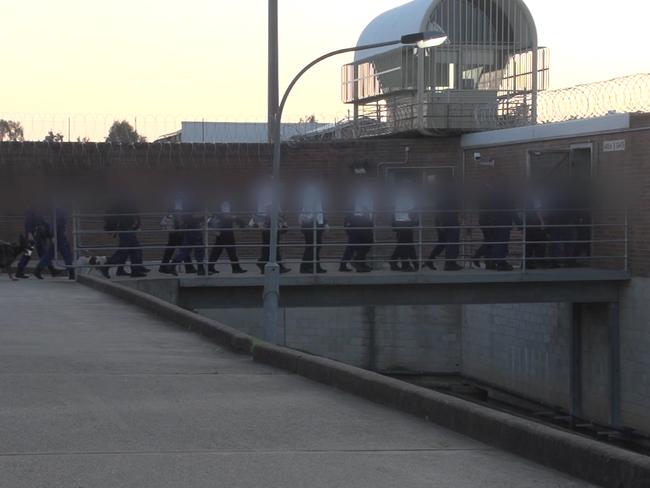
Josh’s first meeting with his target would be held on April 26, 2013, a few months out from the pre-trial hearings. They spoke for a half-hour in the visiting area of Parklea prison, where Xie had been moved ahead of his trial, the recording marred by background conversation in the prison.
“The environment was very difficult because it was in a prison,” Josh said. “But I was pretty proud of the information we received off him.”
Josh decided not to go anywhere near the murders during that conversation (“I was never going to ask him about the murders on that first meeting”) but he walked out of the prison that day with a breadcrumb, a tiny admission to get him started. “Go ahead,” Xie had muttered, when Josh had asked him whether he should start sourcing a body.
It’s an old military cliche that no mission ever goes according to plan, but in Josh’s line of work these ‘what-ifs’, as they’re known, are factored into the strategy. The ‘what if’ in this case was Xie’s wife Kathy, who strongly supported her husband’s innocence and turned up to visit him as often as possible. It became impossible to discuss anything about the cadaver, the fingerprints, or the case in her presence.
“Rapport is just the biggest thing,” Josh explained to me, when I asked him how he was able to build trust with Kathy so rapidly, and then gain her permission to meet with Xie alone.
Rapport is the basic building block of undercover work, one of the first techniques taught to recruits. Establishing it with Kathy happened gradually. He put her at ease by explaining his interest in the case and the people he knew who might be able to help. She liked him, and it didn’t hurt that Xie, too, encouraged his wife to trust him. Eventually she relented, calling Josh on his mobile to say he was clear to meet with her husband alone.
On May 24, 2013, Josh returned to the jail for a final time, armed with a listening device and camera both rolling on the discussion. A team of police eavesdropped as Josh and Xie discussed the murder weapon, then the cadaver.
Finally, in a moment that stunned everybody, Xie raised the murders themselves and made admissions to the killings.
“He actually said, ‘I did it — I did it, I did it’,” Josh said, explaining that Xie repeated himself when the operative pretended he couldn’t hear him. “It was awesome … it was the money ball; but he still never told me about the weapon and where to find it.”
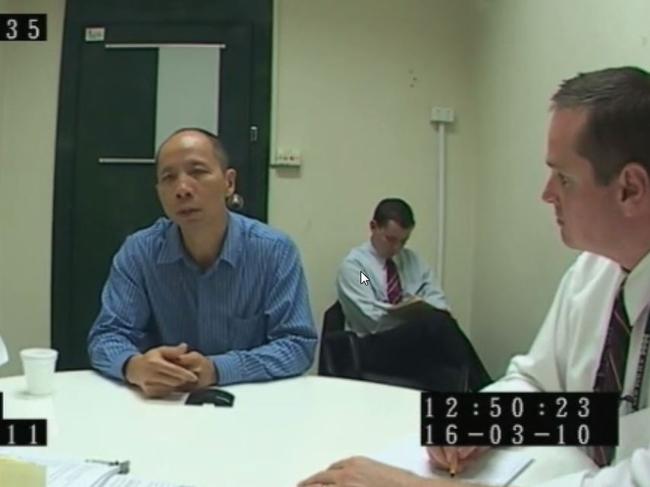
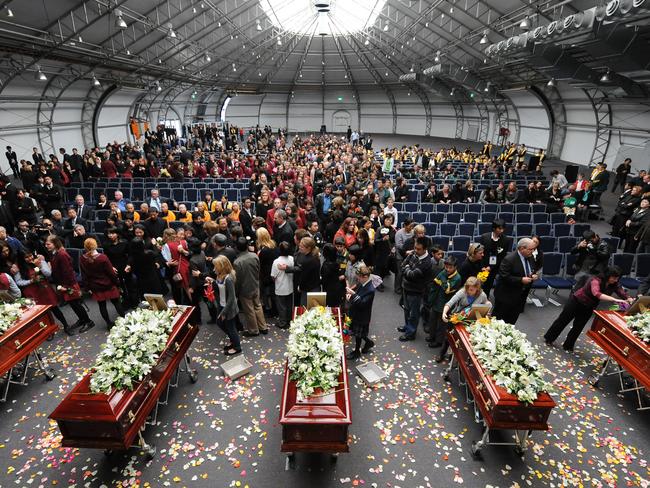
Xie’s trial would later hear substantial attacks on these recordings from Xie’s barrister, Graham Turnbull, who argued that a jury shouldn’t be permitted to hear the conversations for several reasons. Aside from being almost wholly indecipherable in parts, Turnbull said Josh had misrepresented himself and violated his client’s fundamental right to silence, because he never would have met with Josh if he’d known he was a police officer.
The judge weighed this argument, but ultimately rejected it, providing the recordings to the jury for their deliberations.
On January 12, 2017, Xie was found guilty by an 11-1 majority verdict. He is currently appealing his five life sentences.
LIFE AFTER THE POLICE
Josh retired from the NSW Police Force in February 2015, departing with several awards and accolades in recognition of his service. Today, he runs a business with a friend, both of them working hard to make ends meet.
“I thought it was a job I could do forever,” Josh said of his time at the branch, of which he retains only fond memories. “But there is a shelf life.”
Aside from his wife, he told no one about his covert existence. His parents only recently discovered the extent of his career, and there will be readers of this story who interact with him daily and have no idea of the service he provided for the state.
It’s the same deal for anyone who’s experienced the exciting but circumscribed life in the clandestine services: an occluded existence, where even socialising with cop colleagues, at charity events, the football, at retirement functions and black-tie dinners, is off-limits for security reasons.
Personal safety, Josh’s wife said, remains something of a “work in progress”. Both she and Josh are hyper-vigilant about their parenting, especially in the aftermath of his work on paedophile rings. But if there’s one relief it’s that there’s less need for constant precaution.
“I don’t think either of us ever ordered a coffee with our real name,” she said, referring to the baristas who shout out coffee orders.
This secrecy is what bound Josh and his wife to his colleagues at the branch. “It was the only circle of friends who you could speak to without having to tell lies to, or at the very least limit the truth to,” she said. “Because to keep safe you have to be secretive.”
Another casualty of this secrecy is the award ceremonies. For years they were held in a small room with just a few high-ranking cops, rather than the parade ground. “I always thought that was really sad,” said Andy MacFarlane, the former operative, who earned several awards during his career. “I would have loved my mum and dad to have been there when I got an award, or my kids. But because of the nature of the job, you didn’t get celebrated.”
But this is no longer the case. According to Henry, the branch’s commander, these rules have since been relaxed. The room is still small, and the people within are still mostly ageing, very senior police, but a small selection of civilians can now attend, too. It’s a small consolation for a life of difficult service.
“People like Josh performed exceptional duties for the people of NSW,” Henry said.
“And a true measure of their success is that you don’t know who they are.”
Originally published as The day Lin family killer Robert Xie finally confessed to his crime


